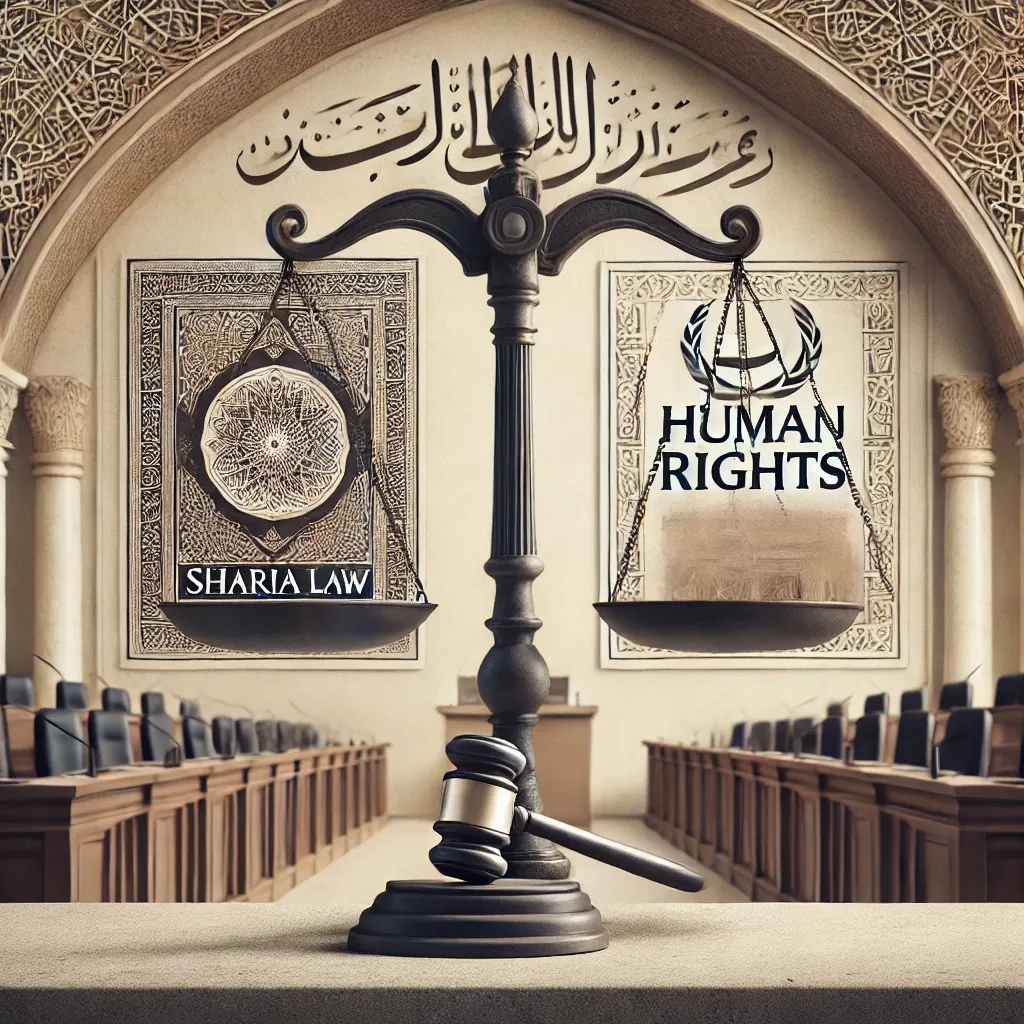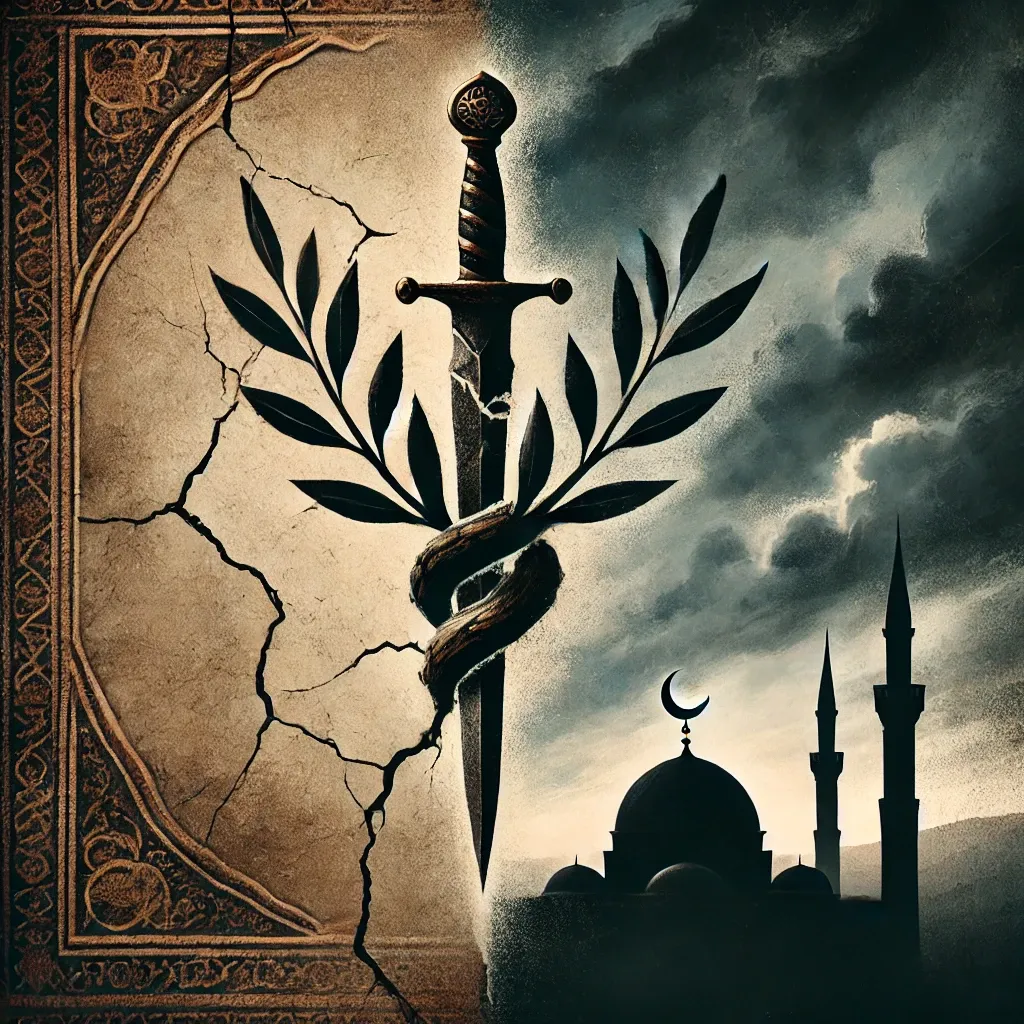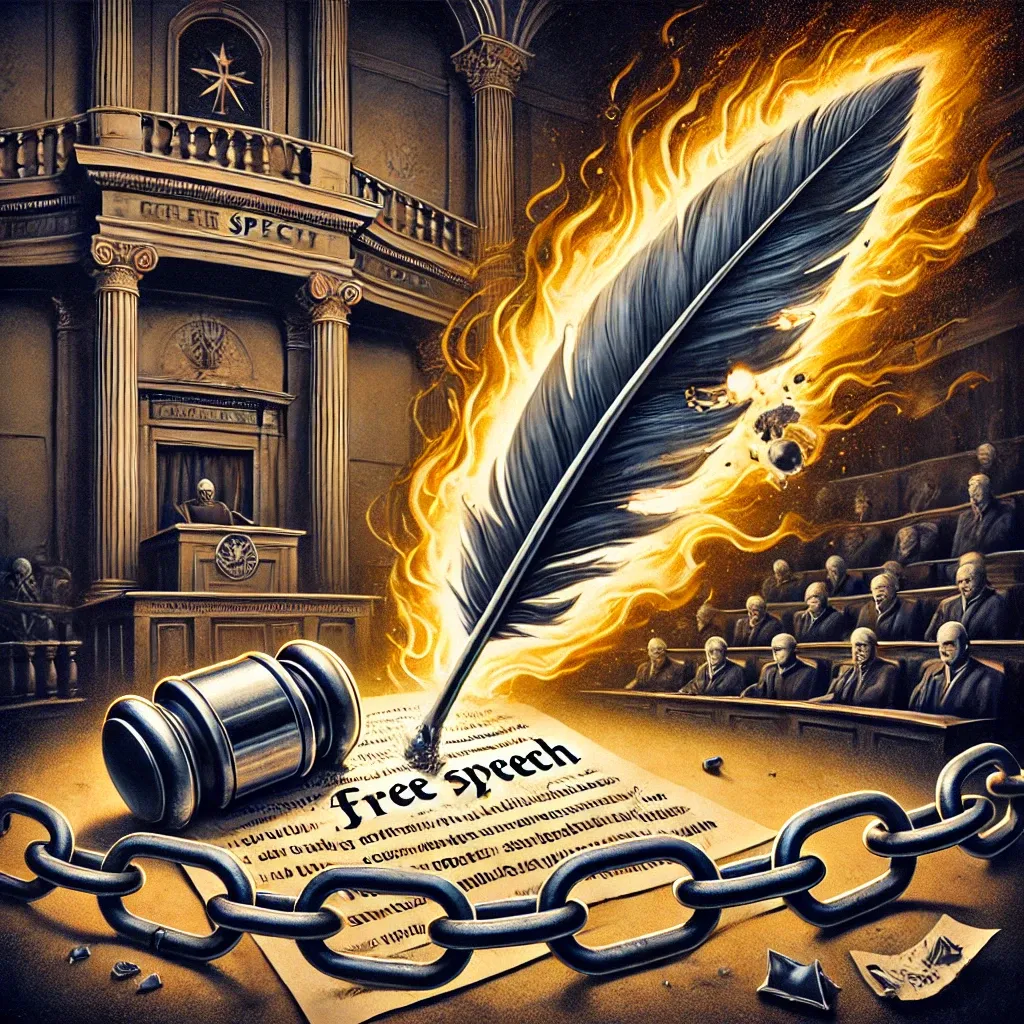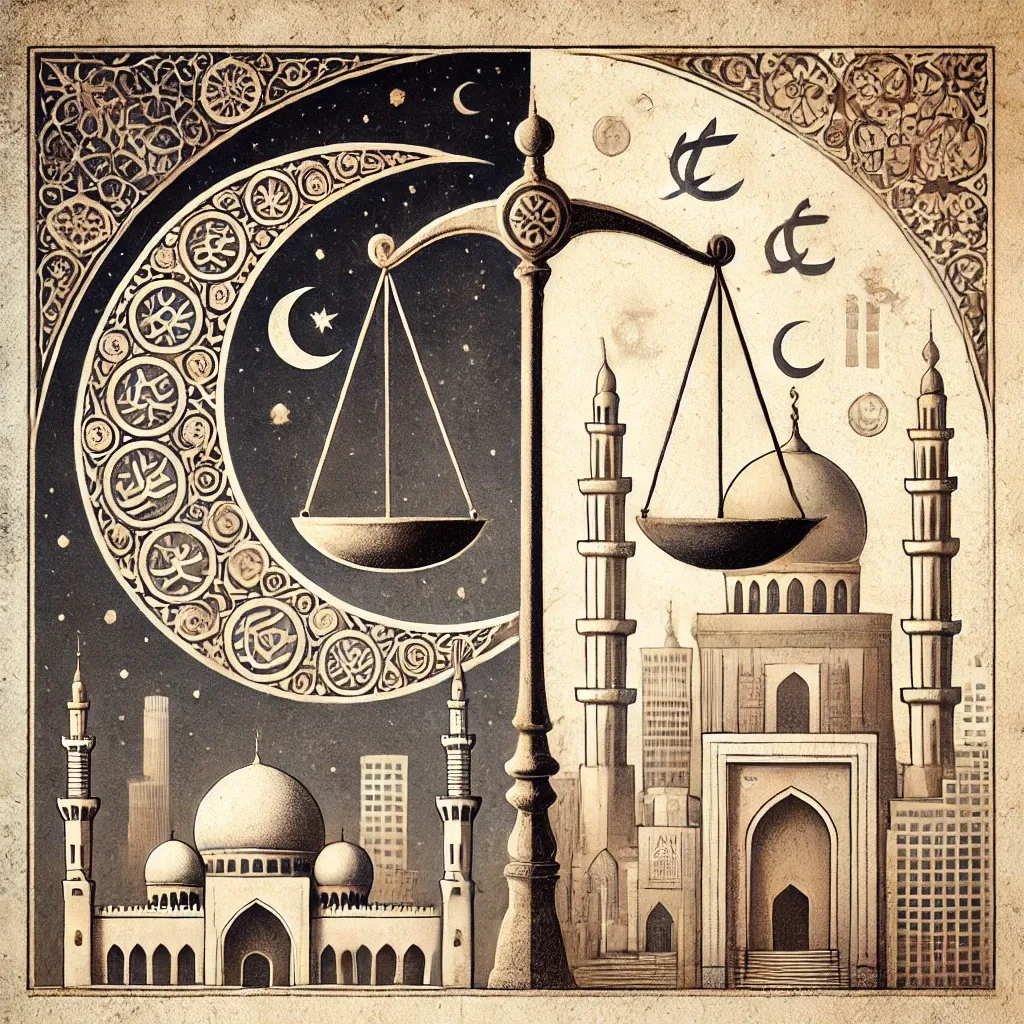

By Dr. Tim Orr
In our increasingly pluralistic society, engaging with Muslims on matters of faith requires both clarity and strategy. While apologetics focuses on defending the Christian faith by addressing challenges and misconceptions, polemics takes a different approach—it plays offense by critiquing the beliefs of others, in this case, Islam. Polemics involves asking hard questions, challenging inconsistencies, and highlighting how Islamic teachings may conflict with reason, human rights, or their foundational principles.
One effective tool for engaging in polemics, which I first heard from Gregg Koukl from Stand to Reason, is the Columbo tactic, inspired by the beloved TV detective Lieutenant Columbo. Known for his unassuming demeanor and skillful, probing questions, Columbo was able to uncover truths without being confrontational. Similarly, the Columbo tactic provides a respectful yet incisive method for critiquing Islamic beliefs and practices, fostering thoughtful dialogue that can lead to deeper reflection.
To assist in this effort, I have crafted a series of questions that address key themes often raised in discussions about Islam, including:
- Critique of Sharia and Human Rights
- Islam and Violence
- Free Speech and Blasphemy
- Islam and Secularism
- Gender and Sexuality
These questions aim to directly challenge Islamic doctrines and practices, encouraging meaningful dialogue while exposing critical issues within the Islamic worldview.

Critique of Sharia and Human Rights.
How do you reconcile the concept of human rights as universal and inalienable with Sharia, which is often contextually rooted in 7th-century Arabia?
- Follow-up: Do you think the historical context of Sharia laws affects their applicability today?
Many Western cultures emphasize individual freedom and autonomy. How do Islamic laws, such as those governing apostasy or blasphemy, align with these principles?
- Follow-up: Could there be a way to interpret Sharia that allows for greater personal liberty?
What role do you think cultural interpretations of Sharia play in its application? For example, how do different cultures adapt Sharia to modern human rights norms?
- Follow-up: Are there examples of successful integration without compromising the core principles of Islam?
In some Muslim-majority countries, women's rights are often restricted under Sharia-based laws. How do you view these practices in light of the Quranic teachings on the dignity and worth of all individuals?
- Follow-up: How would you address critics who say such restrictions are inherently unjust?
Freedom of speech is a cornerstone of human rights in the West. How do Islamic prohibitions on blasphemy or criticism of the Prophet Muhammad fit within societies that prioritize free expression?
- Follow-up: Could there be a way to maintain respect for religious figures without limiting free speech?
The Quran and hadith prescribe specific punishments for crimes, such as hudud laws. Do you see these as unchangeable divine mandates, or is there room for reinterpretation in modern criminal justice?
- Follow-up: How do you balance justice with mercy in these cases?
In many secular societies, laws are based on reason and collective human experience. How do you think Sharia, as divinely revealed, interacts with secular law in pluralistic societies?
- Follow-up: Can Sharia coexist with secular legal frameworks, or do they inevitably conflict?
Religious minorities in some Islamic countries face restrictions under Sharia laws, such as limitations on building places of worship. How does this align with the Quranic principle of 'no compulsion in religion' (Quran 2:256)?
- Follow-up: What reforms, if any, could address these issues?
How do you respond to critics who argue that certain aspects of Sharia, such as the treatment of LGBTQ+ individuals, contradict contemporary understandings of human dignity and equality?
- Follow-up: Can Islamic teachings evolve to address these critiques while remaining faithful to their core?
What do you think the future holds for Sharia in a globalized world where diverse cultures and legal systems interact?
- Follow-up: Do you envision a form of Sharia that is universally appealing and compatible with human rights norms?

Islam and Violence
Scriptural and Doctrinal Questions
- The Quran contains verses like Quran 9:5 ('the verse of the sword') that appear to call for violence against non-believers. How do you reconcile these verses with claims that Islam is a religion of peace?
- Follow-up: Are these verses contextually limited, or are they applicable today?
- If jihad is often described as a spiritual struggle, why have so many Islamic movements throughout history interpreted it as a call for armed conflict?
- Follow-up: Is the 'lesser jihad' (armed struggle) as emphasized as the 'greater jihad' (spiritual struggle) in Islamic scholarship?
- Islamic history includes numerous examples of military conquests and expansion. How do these align with the claim that Islam only spread through peaceful means?
- Follow-up: Does the idea of spreading Islam through military means reflect a divine mandate or historical necessity?
Modern Context Questions
- Groups like ISIS and Al-Qaeda justify their actions through Islamic texts and traditions. How do you differentiate their interpretation from mainstream Islam?
- Follow-up: What makes their interpretation wrong, and how can it be definitively proven to be a misrepresentation of Islam?
- Why do some Islamic countries still use Sharia-based punishments like stoning, flogging, or amputation, which many consider violent and inhumane?
- Follow-up: Are these punishments integral to Islam, or are they cultural practices that have been misattributed to the religion?
- If Islam is a religion of peace, why do blasphemy and apostasy laws in some Muslim-majority countries result in violence or even death penalties?
- Follow-up: Should these laws be reformed to align with modern human rights principles?
Interreligious and Political Questions
- Islamic tradition often portrays Muhammad as a military leader and conqueror. How do these aspects of his life influence the behavior of contemporary Muslims who look to him as a role model?
- Follow-up: Can his actions as a military leader be separated from his role as a spiritual guide?
- In interfaith dialogue, Islam is often presented as a peaceful religion. How do you respond to critics who point to incidents of violence against non-Muslims or minority groups in Islamic history?
- Follow-up: Are these incidents reflective of Islam’s teachings or distortions by individuals?
- Many Islamist groups argue that violence is justified to establish an Islamic state. Do you think Islam inherently supports the idea of a theocracy that can be enforced through violence?
- Follow-up: How do you reconcile such views with democratic ideals?
Philosophical and Ethical Questions
- If Islam means 'submission,' how do you respond to those who argue that submission through coercion, as seen in some historical and contemporary contexts, contradicts the idea of true peace?
- Follow-up: Can peace be achieved if submission is demanded rather than freely given?

Free Speech and Blasphemy
Theological and Scriptural Questions
- Islam prohibits blasphemy against Allah and the Prophet Muhammad, yet the Quran emphasizes 'no compulsion in religion' (Quran 2:256). How do you reconcile this apparent contradiction?
- Follow-up: If faith must be freely chosen, should criticism or questioning of Islam be freely allowed?
- The Quran and hadiths mention severe consequences for those who insult the Prophet. How do you interpret these texts in light of modern values of free speech?
- Follow-up: Are these punishments eternal, or can they be reinterpreted in a contemporary context?
- Islamic tradition highly reveres Muhammad as the perfect example for humanity. Should people outside Islam be subject to Islamic blasphemy laws if they critique or satirize him?
- Follow-up: What does this imply about freedom of expression in a pluralistic society?
Historical and Political Questions
- Blasphemy laws in Muslim-majority countries often lead to violence or state-enforced punishments. How do these laws align with the Quranic principle of justice?
- Follow-up: Do you think such laws serve to protect Islam or stifle open discourse?
- Throughout Islamic history, scholars like Averroes and Al-Ghazali engaged in deep philosophical debates, sometimes challenging mainstream views. Would such critical thinkers face accusations of blasphemy today?
- Follow-up: How can Islam encourage intellectual growth if critical voices risk being silenced?
- In countries like Pakistan, blasphemy accusations often lead to mob violence, even when due process is ignored. Does this reflect Islamic teachings, or is it a misuse of them?
- Follow-up: What steps can Muslim leaders take to address such misuse?
Moral and Ethical Questions
- If Islam promotes truth and the Quran claims to be the ultimate revelation, why fear critique or blasphemy? Shouldn't truth stand up to scrutiny and dissent?
- Follow-up: Does suppressing criticism of Islam strengthen or weaken its credibility?
- Many argue that free speech includes the right to offend. Do you believe protecting religious figures from criticism is more important than protecting an individual’s right to express their views?
- Follow-up: Where should the line be drawn between respect for religious beliefs and freedom of expression?
Cultural and Interfaith Questions
- Some Muslim-majority countries prosecute individuals for blasphemy, even if they are non-Muslims. Should people of other faiths or no faith be held to Islamic standards of reverence for Muhammad?
- Follow-up: Does this reflect respect for diversity or impose Islamic norms on others?
- In interfaith dialogue, criticism of Islam is sometimes labeled Islamophobic, while criticism of other religions is accepted. Do you think Islam receives special treatment in such discussions, and if so, why?
- Follow-up: How can Muslims engage in interfaith dialogue without shutting down critiques as offensive?

Islam and Secularism
Theological and Doctrinal Questions
- Islam teaches that Sharia is a divine law that governs all aspects of life. How do you reconcile this with the secular principle of separating religion from state affairs?
- Follow-up: Can Sharia be reinterpreted to coexist with secular governance without compromising its core teachings?
- If Islam views sovereignty as belonging to Allah, how can a secular system that prioritizes human sovereignty align with Islamic principles?
- Follow-up: Is it possible for Muslims to fully participate in secular democracies without compromising their religious obligations?
- The Quran and hadith provide guidelines for governance. Does this suggest that secular systems are inherently flawed compared to Islamic governance?
- Follow-up: How do you respond to Muslims who advocate for secularism as a way to avoid religious authoritarianism?
Historical and Political Questions
- Historically, Islamic empires combined religious and political authority. Do you think the separation of religion and state, as seen in secular systems, is a departure from Islamic tradition or an opportunity for modernization?
- Follow-up: What lessons can be learned from historical attempts to implement Sharia in governance?
- Countries like Turkey and Tunisia have adopted secular governance while maintaining a majority-Muslim population. Are these examples of successful integration, or do they represent a compromise of Islamic values?
- Follow-up: What role does secularism play in preserving peace and diversity in these societies?
- Islamic political movements, such as the Muslim Brotherhood, often oppose secularism. Do you believe these movements represent mainstream Islam, or are they radical interpretations?
- Follow-up: What distinguishes legitimate Islamic governance from political Islamism?
Ethical and Cultural Questions
- Secularism emphasizes freedom of belief and expression. How do you respond to critics who argue that Islamic laws, such as those against apostasy or blasphemy, conflict with these freedoms?
- Follow-up: Is protecting Islamic values or individual freedoms in a diverse society more important?
- In many secular societies, laws are based on reason and collective human experience rather than divine revelation. Does this approach inherently conflict with Islamic teachings, or can the two coexist?
- Follow-up: How do you view the role of reason in shaping moral and legal systems compared to divine authority?
Philosophical and Interfaith Questions
- Some argue that secularism is neutral and creates a level playing field for all religions, while others claim it marginalizes religion altogether. How does Islam view secularism—as a threat or an opportunity?
- Follow-up: Can secularism offer Muslims the freedom to practice their faith authentically?
- In interfaith societies, secularism is a unifying framework that avoids privileging one religion. How do you respond to critics who argue that Islam seeks to dominate rather than coexist within such frameworks?
- Follow-up: Can Islamic teachings adapt to prioritize coexistence over dominance in pluralistic societies?

Gender and Sexuality
Scriptural and Theological Questions
- The Quran permits polygamy (Quran 4:3) and gives men a degree of authority over women (Quran 4:34). How do you reconcile these verses with the modern principle of gender equality?
- Follow-up: Can these verses be reinterpreted to reflect contemporary understandings of equality?
- Islam prescribes different roles for men and women based on biological differences. How do you address critics who argue this reinforces rigid gender stereotypes and limits individual potential?
- Follow-up: Should Islamic teachings adapt to the changing roles of women in modern societies?
- Some argue that the Quran and hadith place greater emphasis on a man’s sexual rights in marriage than on a woman’s. How do you respond to claims that this creates an imbalance in marital relationships?
- Follow-up: Does Islamic teaching provide sufficient safeguards for women's autonomy within marriage?
Cultural and Societal Questions
- In many Muslim-majority countries, women face restrictions on dress, work, and education. Do these practices reflect Islamic teachings, or are they cultural traditions that have been misattributed to religion?
- Follow-up: How can Muslim societies address these disparities while remaining faithful to Islamic principles?
- Islamic modesty laws often place the burden on women to prevent men from being tempted. How do you respond to critics who argue this unfairly shifts responsibility away from men?
- Follow-up: Should Islamic modesty be reframed to emphasize mutual respect and accountability?
- Many Islamic scholars condemn homosexuality as incompatible with Sharia. How do you address this stance in light of increasing global acceptance of LGBTQ+ rights?
- Follow-up: Can there be room for a more inclusive understanding of sexuality within Islam?
Ethical and Philosophical Questions
- Critics argue that Islamic inheritance laws, which allocate a smaller share to women (Quran 4:11), are inherently unjust in a modern context. How do you respond to claims that this violates gender equity?
- Follow-up: Could these laws be reinterpreted to reflect contemporary understandings of fairness?
- Islam often emphasizes complementary roles for men and women. How do you respond to those who argue that this framework perpetuates a hierarchy rather than a genuine partnership?
- Follow-up: Can complementarity exist without inequality?
Political and Legal Questions
- Islamic laws on adultery and fornication, which prescribe harsh punishments, are seen by some as disproportionately affecting women. How do you address concerns that these laws are applied unjustly?
- Follow-up: Should these laws be reformed to reflect principles of fairness and justice?
- In some Islamic countries, LGBTQ+ individuals face legal persecution or even death. How do you respond to critics who argue that such practices violate basic human rights?
- Follow-up: Should Islamic legal frameworks evolve to protect the dignity and rights of LGBTQ+ individuals?
Tim Orr is a scholar of Islam, Evangelical minister, conference speaker, and interfaith consultant with over 30 years of experience in cross-cultural ministry. He holds six degrees, including a master’s in Islamic studies from the Islamic College in London. Tim taught Religious Studies for 15 years at Indiana University Columbus and is now a Congregations and Polarization Project research associate at the Center for the Study of Religion and American Culture at Indiana University Indianapolis. He has spoken at universities, including Oxford University, Imperial College London, the University of Tehran, Islamic College London, and mosques throughout the U.K. His research focuses on American Evangelicalism, Islamic antisemitism, and Islamic feminism, and he has published widely, including articles in Islamic peer-reviewed journals and three books.
Sign up for Dr. Tim Orr's Blog
Dr. Tim Orr isn't just your average academic—he's a passionate advocate for interreligious dialogue, a seasoned academic, and an ordained Evangelical minister with a unique vision.
No spam. Unsubscribe anytime.
